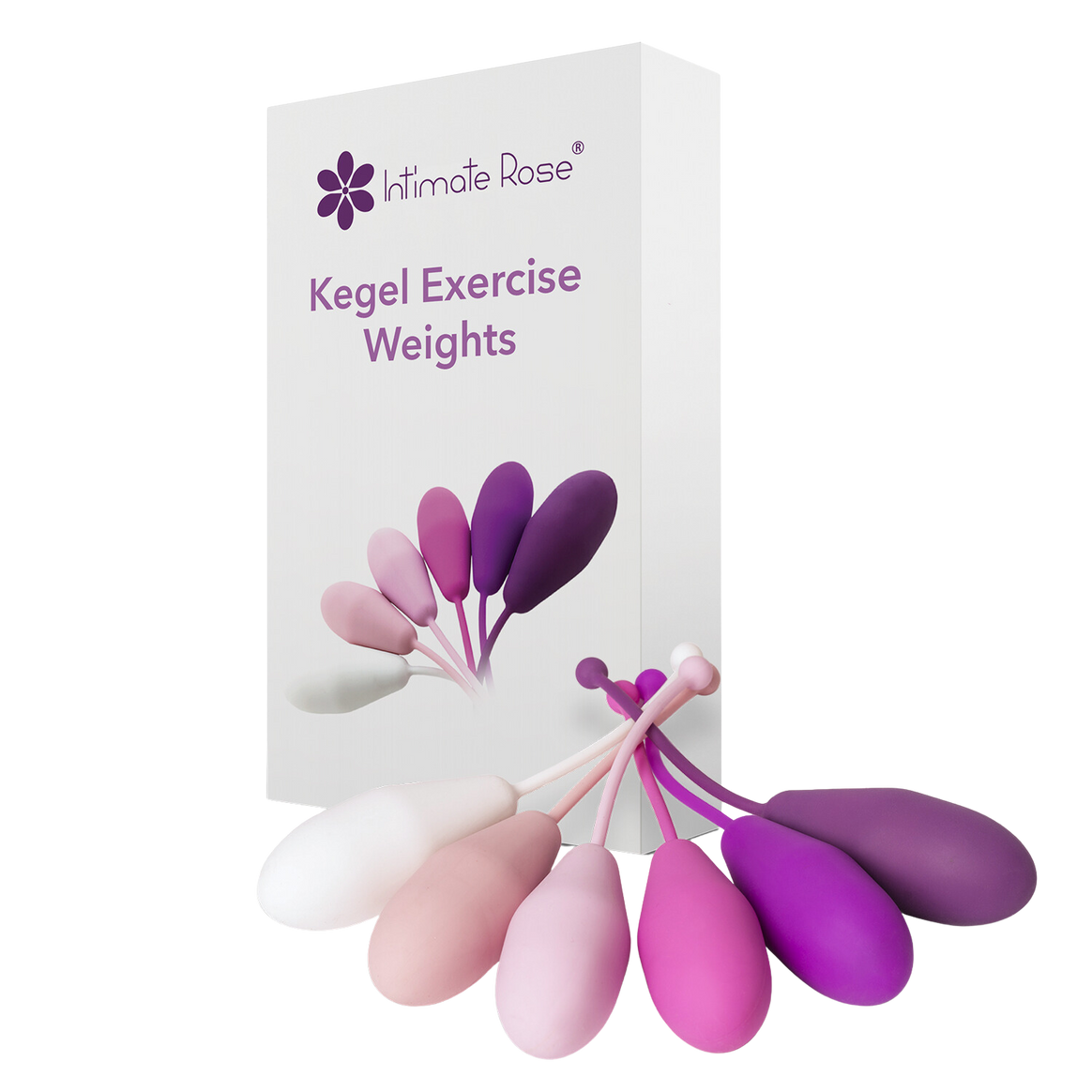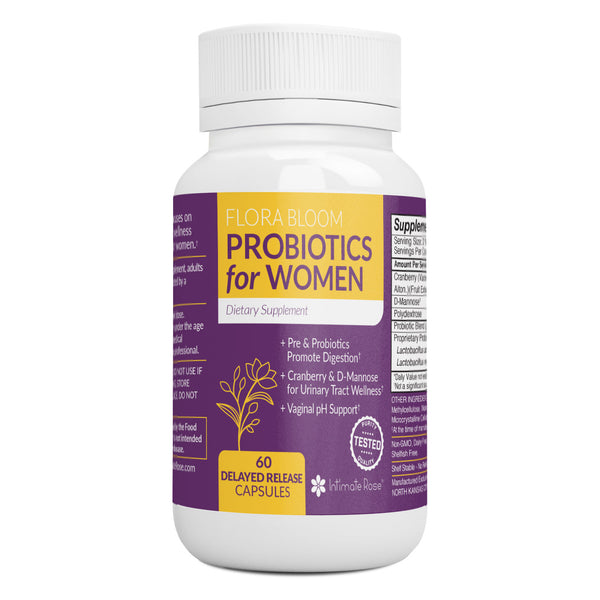What is a Kegel Egg | What They Do | Safety | Alternatives | Conclusion
Kegel eggs, also known as yoni eggs, are promoted as egg-shaped gemstones that can be placed inside the vagina to promote healing and sensuality within the reproductive organs.
However, according to several female health experts, yoni eggs are not all that they are reported to be and women are being urged to consider more research before putting them in the body. Keep reading to learn more about Kegel eggs, what they are exactly, and whether you should use them.
What Is a Kegel Egg?
Made from semi-precious gemstones like jade, obsidian & quartz, Kegel eggs, or yoni eggs, were supposedly used by the ancient Chinese to promote sexual pleasure and female reproductive health.
In recent years, these kegel eggs appear to have gained popularity based on reviews from celebrities like Goop owner Gwyneth Paltrow and others.
However, a study published in the Female Pelvic Medicine and Reconstructive Surgery journal in 2019 found no evidence of yoni egg practice amongst Chinese archeology collections.
What Does A Kegel Egg (Supposedly) Do?
Kegel eggs, or yoni eggs, are effectively promoted as energy crystals for the vagina, pelvis, and reproductive organs. When placed inside the vagina, the healing energy from the stone allegedly helps to regulate menstrual cycles and soothe menstrual cramping.
It is also suggested that the physical act of holding the egg in place will improve urinary function, as well as libido & orgasms by strengthening the pelvic muscles.
There is no research to support any of these claims and according to several female health experts, placing a semi-precious stone inside the vagina is more harmful to your vagina than beneficial.
Can Yoni Eggs Strengthen the Pelvic Floor?
Strengthening the pelvic floor muscles is similar to toning other muscles in the body in that a repetitive contraction and release of the muscles is required. This can be felt during a regular kegel exercise – when the vagina and anus muscles are intentionally squeezed and lifted, held for a few breaths, and then released. However, this does not happen when a kegel egg or yoni egg is placed in the vagina.
To hold a yoni egg inside the vagina, the pelvic muscles must be engaged (contracted) all the time, or the egg falls out. This continued contraction of the pelvic muscles around a kegel egg is what allegedly strengthens the pelvic floor.
However, pelvic floor physical therapist, Dr. Amanda Olson, explains that continued contraction of the pelvic floor for prolonged periods of time will only lead to a build-up of pelvic floor tension, fatigue of the muscles, and sometimes poor muscle control.
Pelvic floor tools held in the vagina such as Kegel balls or vaginal weights should not be used for longer than 20 minutes per session to allow the muscle to relax and rest.
When the pelvic muscles can’t relax, they are unable to assist the pelvic organs in performing normal bodily functions such as urinating, bowel movements, or control to prevent incontinence. As time passes, this sort of tension can also become incredibly painful and result in further complications.
45-Min Online Pelvic Therapy Session, $99 
Is It Safe to Use Yoni Eggs?
According to many female health professionals, it is not safe to insert yoni eggs into the vagina. Considering how fragile the microbiome of the vagina is, and how susceptible the vaginal tissues are to injury, any foreign object that is not medically approved can harm the vaginal canal and result in additional side effects.
Three harmful impacts that yoni eggs are known to have on the female body are:
Vaginal Bacterial & Fungal Infections
Kegel eggs, or yoni eggs, are typically made from semi-precious gemstones such as jade, obsidian, onyx, or quartz. These gemstones are also semi-porous, meaning that there is enough space for bacteria or fungi to reside in the pores of the stones.
In addition to that, semi-porous stones are known to be difficult to thoroughly clean, so bacteria can continue to live in the pores of the stones, even after washing, and continue to upset the vaginal microbiome whenever inserted.
As well as that, the surface of the stones can also tear the fragile tissues of the vaginal canal when inserted, increasing the risk of bacterial infections.
Toxic Shock Syndrome
Normally associated with forgotten tampons, toxic shock syndrome is a serious bacterial infection that can cause severe health problems and sometimes death. Experts believe that using yoni eggs could present the perfect conditions for toxic shock syndrome to thrive.
Firstly, leaving an object that is not medically approved inside the vagina for an extended amount of time can increase the risk of toxic shock syndrome.
The possibility of bacteria residing in the pores of these semi-porous eggs heightens the risk. And thirdly, bacteria from tiny scratches caused each time the egg is inserted can easily enter the bloodstream, further increasing the risk of toxic shock syndrome.
Damaged Pelvic Floor Muscles
As mentioned above, yoni eggs are not recommended for strengthening the pelvic floor because they require a continual clenching of the pelvic floor muscles to hold the egg in place for longer than 20 minutes.
Correctly performed pelvic floor exercises follow a contract, hold, and release pattern to strengthen and tone, and endurance sessions should conclude by the 20 minute mark.
But when the release is absent from the exercise, the constant contraction causes more harm than good and eventually results in severe pain that could cause further complications.
Kegel Weights

Are There Safe Alternatives to Yoni Eggs?
Yes, if you are looking to improve your pelvic floor strength, relieve pelvic organ prolapse, increase sexual pleasure or intensify your orgasms, kegel exercises - a form of pelvic floor training - come highly recommended.
Once you’re accustomed to performing kegel exercises correctly, Dr. Amanda Olson recommends adding our FDA-approved, medical-grade silicone kegel weights to your training for extra resistance.
What Is a Kegel Weight?
Also known as vaginal weights, Kegel weights are medical devices used to strengthen and re-train the pelvic floor muscles when they have been weakened. Made with smooth medical-grade silicone that feels comfortable inside the body, Kegel weights (or balls) are designed to fit in the vagina like a weighted tampon.
Once inserted, the pelvic floor muscles are engaged to keep the weight in place, but in contrast to yoni eggs, it is not a continued contraction. To begin with, a longer contraction of the pelvic floor muscles is admittedly required for some women to become used to holding the Kegel weight in place.
Once this becomes comfortable, however, the process of contracting, holding, and releasing (as per a regular Kegel exercise) is recommended to re-train and strengthen the pelvic muscles with the weight in place.
To allow for continued training and strengthening, Kegel weights are typically sold in sets of ascending weights. And similar to how you would progress with heavier weights when training at the gym, Kegel weights are used in the same way.
For example, when you’re comfortable doing kegel exercises with the lightest weight in the vagina for 10-15 minutes per day, you will progress to the next weight and repeat the training process.
What Female Conditions Do Kegel Weights Help?
Similar to training any other muscles in the body, the pelvic floor muscles can weaken with time and age. Alternatively, certain life experiences like pregnancy, childbirth, pelvic surgery, pelvic trauma, or menopause can weaken the pelvic floor muscles.
However, strengthening the pelvic floor muscles with Kegel ball exercises will enable them to function better.
Well-functioning pelvic floor muscles can improve conditions like PMS, urine incontinence, fecal leaks, and even your physical posture & core strength. Re-training the pelvic floor muscles with Kegel weights also improves female sexual pleasure and orgasms, releases the pain of tight hips, and helps to relieve pelvic organ prolapse.
Conclusion
Kegel eggs, also known as yoni eggs, are advertised as energetic healing stones for the vagina and a way of strengthening the pelvic floor muscles. But according to female health experts, yoni eggs are not something that should be placed in the vagina. In fact, they do more harm than good.
If you are looking to strengthen your pelvic floor muscles, treat incontinence, or improve your sexual pleasure, try using medical-grade, FDA-approved kegel weights instead.
References
National Institute of Health – Pelvic Floor - https://www.nichd.nih.gov/health/topics/pelvicfloor/conditioninfo
Cleveland Clinic – Are Yoni Eggs Safe https://health.clevelandclinic.org/are-yoni-eggs-safe/
Cochrane Library - Weighted vaginal cones for urinary incontinence - https://www.cochranelibrary.com/cdsr/doi/10.1002/14651858.CD002114.pub2/full
North American Menopause Society - 3 Ways to Strengthen Your Pelvic Floor For Better Sex - https://www.menopause.org/for-women/menopauseflashes/sexual-health/for-better-sex-3-ways-to-strengthen-your-pelvic-floor
National Library of Medicine - Vaginal Jade Eggs: Ancient Chinese Practice or Modern Marketing Myth? - https://pubmed.ncbi.nlm.nih.gov/30365448/

45-Min Online Pelvic Therapy Session, $99
















